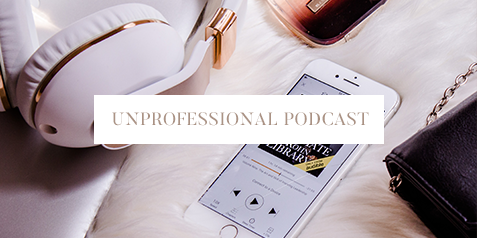Workaholism is much more common than we think because we’re trained to reward hard work, be efficient and get as much done as possible. However, work is only part of who we are; it’s not the whole picture.
If I told you “I’m a thought leader” there’s no way you would be able to know that I have a motorcycle license, I’m a twin or that I speak Japanese (Nihongo o Hanashimasu).
Something I always preach is that “your career is not your identity” because it’s true. If we all quit our jobs today, life would go on and we would all still be humans… I wouldn’t stop being a twin if I quit my job!
But being passionate about your job is a good thing. It helps you succeed, and it inspires people around you. On the other hand, having your life revolve around your work is another story.
In a society where hard work is held in high esteem and rewarded, it is often hard to distinguish between people who love their work and those who are addicted to it. Some workaholics may justify their condition as just being “committed.”
Many people don’t consider being a workaholic a serious problem. But according to Stewart Friedman, a Wharton professor of management and author of Leading the Life You Want: Skills for Integrating Work and Life, when you work long hours, take few vacations—essentially, giving all your attention to work—you’ll eventually pay a steep price. It will take its toll on your health, your relationships and even your productivity.
How do you know if you are a workaholic?
Ask yourself what motivates you to work. If you’re driven by excitement, enthusiasm and the need to pay the bills (which is totally healthy!), then you’re doing just fine.
But if you’re working based on needing constant validation, avoiding a sense of emptiness, or being afraid of not doing enough, then you might have a problem with workaholism.
To determine if you are a workaholic, let’s get into the specifics. Here are 9 more signs of work addiction:
- You put in long hours at work, even if you don’t have to, or you spend much more time working than you intended.
- You are not getting enough sleep because you are working on projects or completing work-related tasks.
- You are often thinking of ways to free up your time to do work (even if it means sacrificing your personal time on the weekend).
- You have an intense fear of failure and are paranoid about your performance at work.
- You keep yourself busy working to reduce or escape feelings of guilt, depression and/or helplessness.
- Your family or friends have asked you to cut down on work, but you don’t listen. If people who care for you are worried about your working habits, you might really have a problem.
- You are stressed out when you are prohibited from working. When you are not working, you feel anxious because you really want to be working.
- You stop doing other activities outside work. You no longer have time for your hobbies, leisure activities and even exercise because you’re spending all of your time working.
- Your work habits negatively affect your health.
How do you overcome being a workaholic?
Technology makes it even more challenging to avoid work-related tasks because smartphones, tablets and laptops allow you to work from anywhere at any time. According to a New York Post article, 48% of employed Americans considered themselves workaholics.
Being a workaholic should not be glamorized. If you think you’re a workaholic, consider self-awareness as a strategy to realize your habits and be honest with yourself if any of the above points apply to you. This includes monitoring your working hours and evaluating if your work life is causing problems in your personal life.
Take regular vacations, find ways to disconnect from work and set healthy boundaries to have a healthy work-life balance.
If you are struggling to overcome workaholism on your own, do not be ashamed to seek help. There are programs you can join to be part of a community of others who struggle with the same problem.
Bringing all parts of yourself to your work is one way to help. If you continue to acknowledge and show different sides of yourself in the workplace, you’ll be reminded that you have a life outside of the office that’s calling you to it.
For more insight on humanizing your work experiences, check out my podcast UNprofessional, where we explore the boundaries of work, humanity and culture. New episode out today on Spotify and Apple podcasts.
I welcome you to join the UNprofessional community as we navigate what it means to work in this Human-Centric Era, where humans are at the center of all processes. And if you have any other questions, DM me on IG @hilarycorna. I’d be happy to have a conversation with you.
In love and respect,
Hilary Corna














